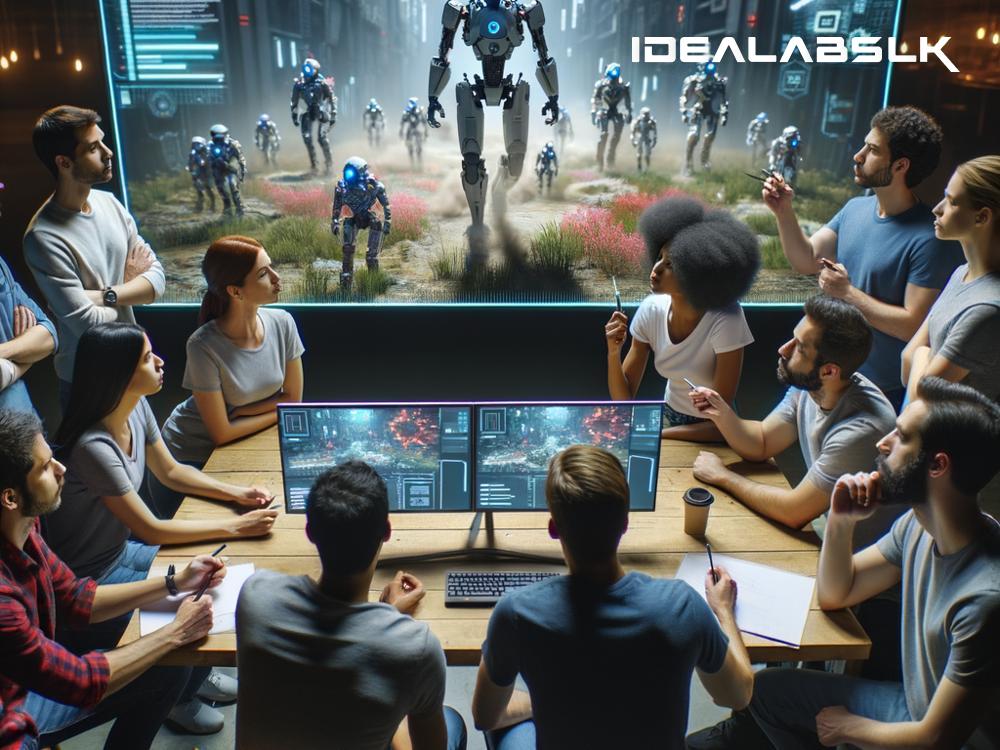How AI Will Improve Game Testing and Bug Fixing in 2025: Smarter Automation Tools
The video game industry has been evolving at a warp speed, and as we get closer to 2025, one of the biggest game-changers (pun intended) is the integration of Artificial Intelligence (AI) into game testing and bug fixing. For many years, game developers and testers have been grappling with the challenges of ensuring games are released without bugs or glitches, which can be a painstaking and time-consuming process. However, with the dawn of AI, the entire landscape of game testing is set for a revolutionary transformation. Let’s explore how smarter automation tools powered by AI are poised to enhance the gaming experience for developers and players alike.
Smarter and Faster Bug Detection
First off, AI revolutionizes how bugs are detected in games. In the traditional testing process, human testers play through games to identify glitches, which can be incredibly time-consuming and less efficient for complex games. However, AI, with its ability to learn and adapt, can automate this process, scanning through the game at a pace far beyond human capabilities. By 2025, AI tools are expected to become even smarter, capable of detecting not just simple glitches but also complex issues within the game’s code that could potentially lead to bugs. This means that bugs that would previously take days or even weeks to identify can be flagged almost instantaneously.
Predictive Analytics for Bug Fixing
AI doesn’t just stop at finding bugs; by 2025, it will also play a crucial role in fixing them. Through predictive analytics, AI can analyze the game's code and predict which parts are most likely to cause issues, suggesting optimizations and improvements. This not only speeds up the bug-fixing process but can also help in enhancing the overall performance and stability of the game. Developers can leverage this information to fix potential problems even before they arise, ensuring a smoother player experience.
Enhanced Testing Environments
AI’s integration into game testing will also bring about more sophisticated and dynamic testing environments. By 2025, AI-driven testing tools will be capable of creating complex scenarios and simulations that mimic real-world player behaviors and interactions more accurately. This means games will be tested across a broader range of conditions and use cases, from the way different devices interact with the game to how real players might exploit game mechanics. Such comprehensive testing ensures that games are not just bug-free but also balanced and fair, providing an equal playing field for all players.
Continuous Learning and Improvement
One of the most exciting prospects of AI in game testing is its capability for continuous learning and improvement. AI systems can learn from each testing cycle, becoming more efficient and accurate over time. By 2025, these systems will likely have evolved to the point where they can not only identify and fix bugs more effectively but also predict future issues based on historical data. This means that game testing and debugging processes will become increasingly more efficient, reducing the time and resources required to deliver high-quality games.
Personalized Game Experience
Lastly, the integration of AI in game testing translates to enhanced game personalization for players. By identifying and fixing bugs, AI ensures that each player's interaction with the game is smooth and enjoyable. But beyond that, AI can also analyze player data to customize game difficulty, suggest content based on player preferences, and even adapt the game environment in real-time for a tailored experience. This level of personalization not only improves player satisfaction but also increases engagement and longevity within the game.
Conclusion
As we look towards 2025, it's clear that AI will play a pivotal role in reshaping the game development landscape, especially in testing and bug fixing. With smarter automation tools, the processes that once took up significant chunks of the development timeline will become faster, more efficient, and incredibly sophisticated. This not only means a better working environment for game developers but also a vastly improved gaming experience for players worldwide. The future of game testing and bug fixing is bright, and it’s powered by AI.

